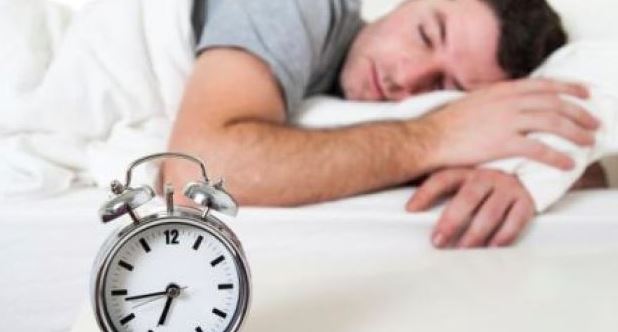
If you’re having trouble sleeping at night, you’re certainly not alone. Insomnia and other sleep disorders are a constant reality in today’s chaotic world. Fortunately, there are some things you can do to make it easier to fall asleep. Here are 5 helpful tips you can implement.
Maintain a Sleep Schedule
Establishing a sleep schedule and sticking to it is an important part of getting enough sleep. The purpose is to get your body accustomed to falling asleep and waking up at the same times each day. This consistency helps reinforce your body’s circadian rhythm and it’s best to avoid making changes to it on weekends.
Simply determine what time you need to wake up on weekdays, set your alarm for the same time each morning, and go to bed eight hours beforehand. Remember that it’s best not to set aside more than eight hours for sleeping or you won’t feel any sense of urgency to fall asleep. A healthy adult should need more than seven or eight hours each night.
Exercise Regularly
The more physically fit you are, the easier it will be to sleep at night and remain alert during the day. Regular exercise helps alleviate problems with insomnia and sleep apnea. It also increases the amount of time spent in the deeper stages of sleep.
While vigorous exercise seems to increase these benefits, even light exercise can provide noticeable improvement in sleep quality. Note that it may take months for the full effects to be seen, so it’s best to come up with an exercise program you can stick to. Avoid exercising too close to your bedtime, since the metabolic effects of exercising at that hour could interfere with your sleep.
Regulate Light Exposure
Melatonin is a hormone largely responsible for regulating the sleep-wake cycle. When it’s dark, the brain secretes more melatonin, causing you to feel sleepy. During the daytime, there’s enough light to prevent this from occurring, which is why you’re more alert.
Unfortunately, artificial light from tvs, computers, and smartphones can trick the brain into thinking it’s daytime, even when it’s not. Avoid using these devices within two hours of your bedtime to ensure your body’s melatonin production isn’t affected. Getting some sunlight early in the morning will help restore your alertness, ensuring that you’re awake when you’re supposed to be and sleepy when it gets dark.
Optimize Your Sleep Environment
One of the most overlooked factors in a person’s ability to fall asleep involves the sleep environment. If your surroundings are not conducive to sleep, you’ll probably find it difficult to relax. Important factors to look out for include noise levels and room temperature. With regard to your bed, you may have to experiment with various pillows and mattress firmness levels to determine what works best for you.
Note that there are also pros and cons associated with different sleeping positions and you might derive some benefit from making a relatively simple change. For example, sleeping on your left side can help considerably if heartburn issues are keeping you up at night. Even these small changes can make a world of difference.
Wind down before Bed
The more stimulated your brain is during the day, the more difficult it can be to relax at night. Stress from traffic, financial difficulties, or troubles at work can accumulate and carry into the evening hours. Everyone handles stress differently and in the chaos of the modern world, these types of problems are increasingly common.
There are various relaxation techniques that can be employed to help calm your mind before bed. Deep breathing techniques and progressive muscle relaxation are among the simplest and most effective. If these techniques aren’t enough to relieve your chronic worrying, you may need help with stress management.
When it comes to your ability to sleep, there may always be factors beyond your control. It’s not always possible to change your working hours or move to a quieter neighborhood. However, the suggestions above can help you make simple changes that can provide at least some improvement in your sleeping conditions.
Emma Sturgis
Recent Posts
- Castor Oil For Better Hair Growth: Is It Myth Or Fact?
- Exploring the Differences Between Sermorelin, Ipamorelin, Ibutamoren, GHRP2, and GHRP6: Understanding Their Role in Human Growth Hormone Regulation
- Unraveling the Mystery: Understanding the Causes and Prognosis of Ventricular Tachycardia Without Apparent Heart Disease
- Understanding Grandparents’ Rights in Oklahoma: Navigating Visitation and Legal Protections
- 10 Reasons to Consider Hypnotherapy for Your Health

